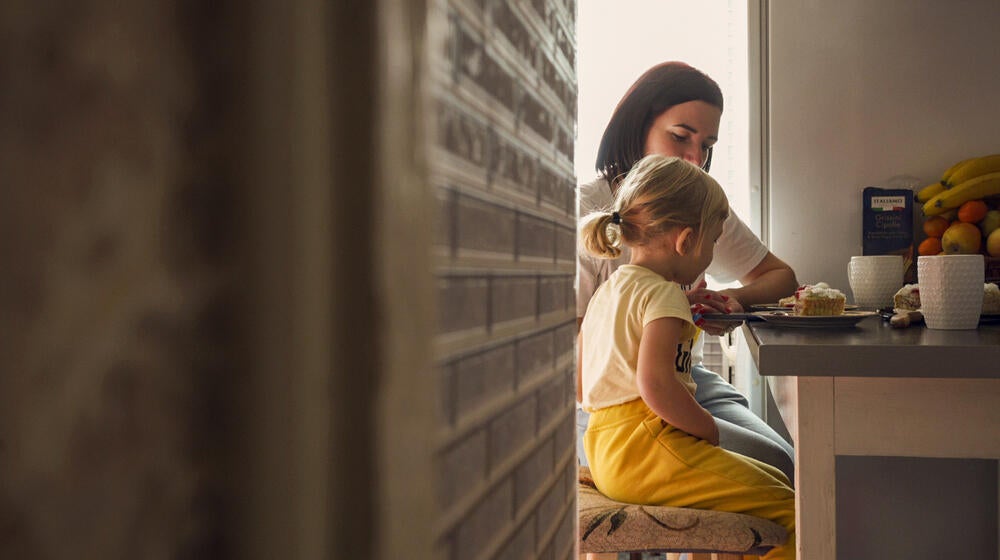“When the war started, people started to get closer. My ex-husband began to visit our child. He was very nice at first, but that didn't last long. Violence returned to our lives."
In order to break the cycle of violence, 33-year-old Kateryna and her three children had to leave Kherson, which was then under the temporary military control of the Russian Federation.
The full-scale war not only caused thousands of civilian casualties across the country, but also affected the level of domestic violence. It didn’t disappear; in some places it intensified. Because of the military impasse, some survivors have been forced to return to a cycle of violence.
Kateryna told UNFPA how she was able to get out of it.
"From morning to night there was shelling in the city"
“On February 24, we did not sleep. I heard three loud explosions. My mother was going to work at five in the morning and said: ‘The war has started.’ I didn't believe it right away, because what kind of war could there be in the 21st century? Although I had heard on the news earlier that there was a possibility of war, I could not believe that it was a reality. But at seven in the morning, all the neighbours went outside in shock. There was black smoke over the buildings not far from us. Everyone was afraid.
My children did not understand what war was. I told my younger daughter that these were fireworks. I didn't want her to be scared, but she understood what was really going on.
In Kherson there was constant shelling, from morning to evening. The windows were shaking. At first, we ran to the basement in our neighbour's house, but later we started to get used to the shelling.
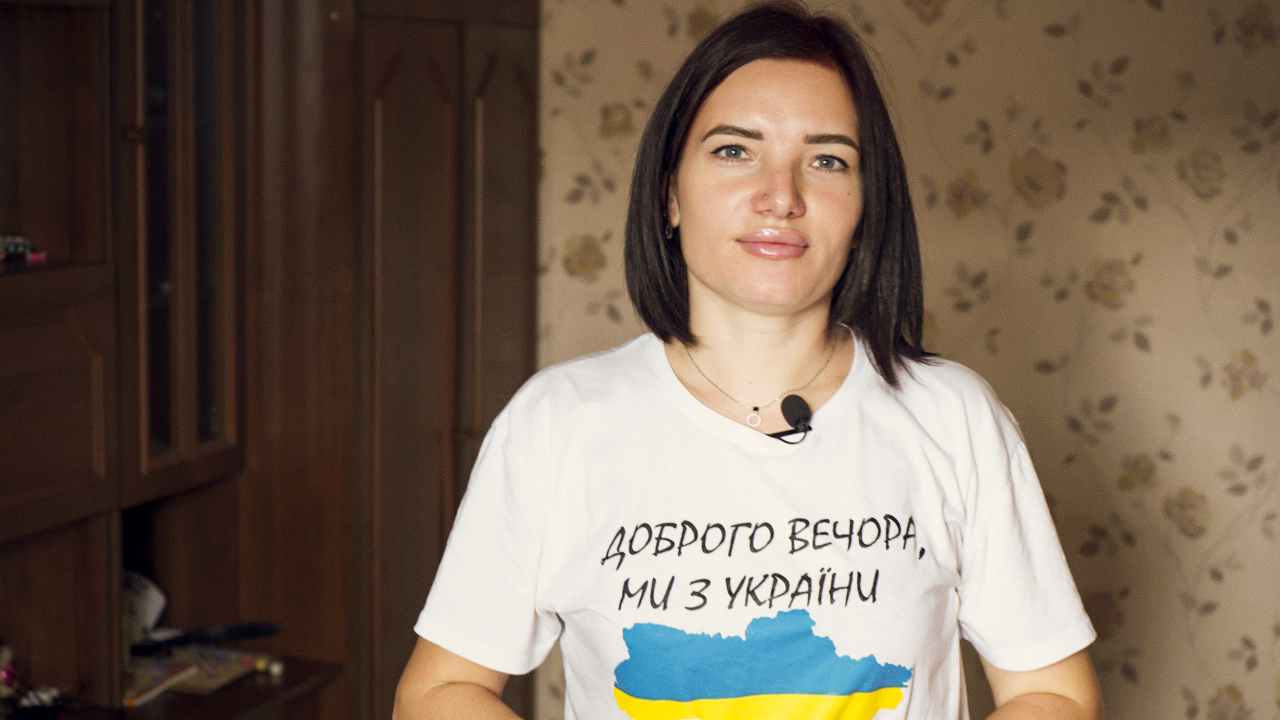
I was afraid to leave the city until the last moment. We strengthened the basement, plastered it. We were preparing to spend the winter in the city. I made compotes;jam all summer so that we had food. I filled the basement with all this.
The crisis that forced me to evacuate was the fact that domestic violence returned in our family. This time the survivor was not me, but my son.”
"Violence began with controlling"
“At the beginning of our relationship with my ex-husband, there was no hint that something was wrong. He was so caring.
‘What shall I buy you, bunny?’ he tried to take care of me.
We started living together, and almost immediately everything changed. I had a shock. I could not understand why a person became different so suddenly. What had happened? Why was he treating me like this?
I remember the first time he hurt me. My son was then four, and my daughter was two. He is their stepfather. The daughter we were to have was not yet born.
I planned to go pick up the children from kindergarten, but he said: ‘No, you won't go, I'll pick them up.’ I answered: ‘Why you would do it?’. He hit me. I felt drops of blood falling on our white tiles in the kitchen. He pushed me into the house, locked the door and said: ‘There is meat, cook dinner. I will soon be back with the children, with my children.’
I felt drops of blood falling on our white tiles in the kitchen
He began to control everything. He wouldn't let me call anyone. He forbade me to talk to my parents and my sister. We moved to another area, so as not to communicate anyone with or see any friends. Once, I took the kids to the hospital and called my sister, but immediately deleted that call. And when we came home, he took the phone and checked how many minutes were left in the starter package from my phone operator for outgoing calls, how long our calls with him had lasted. He calculated all this and said: ‘Where is one minute? One more minute you talked to someone. Why did this minute disappear?’. I replied that I was calling my sister, but had deleted it because I was afraid that he would check and see it. He did not believe me; he claimed that I was calling another man. After that, he beat me again.
I left him a million times, took the children and left. But he came to my parents' house, made a scene, raised his hand against my father and mother. We called the police then, but they did not stop him. He said: ‘I will dismember you, your parents, your children.’ I was afraid for my relatives, I felt guilty that they were suffering because of me. And because of this fear, I returned.
"The first step to escape from the closed circle of violence"
No matter how I tried to stop him, nothing worked. I call the police, they come, take him away, return him. I call the police again and everything repeats. I understood that I was not protected in any way. My father and mother could not protect me, nor could friends, because everyone has their own family. No one is interested in what is happening in your life. When I talked about violence, I heard a judgmental reply: ‘Well, you live with him, so it suits you.’
But I was still able to get away from him. When our daughter was six months old, I went to work. We didn't have any money, he didn't want to work, so I went to work, traded in the market. On the first day, I came back in such a good mood: ‘Wow, my first 300 hryvnias, I can buy baby food.’ On my third day of work, I came back and saw that he was not in a good mood. At dinner, he hit me. Next morning he began to beat me again. Our daughter was frightened and cried. He took her from me and continued to hit me. I ran out into the corridor, held the glass door closed and realized that he wanted to break it, so all the glass would fall on the child. I let go of the door, ran out of the gate. He ran out of the house after me with a hammer and began to hit my back. It was a miracle that he didn't injure my spine. Hearing the screams, the neighbours ran out and called the police. He closed the gate and said: ‘You're not going to have a baby, you're never going to see her again.’ At that moment, I thought, this is the last time I will allow myself to be treated like this.
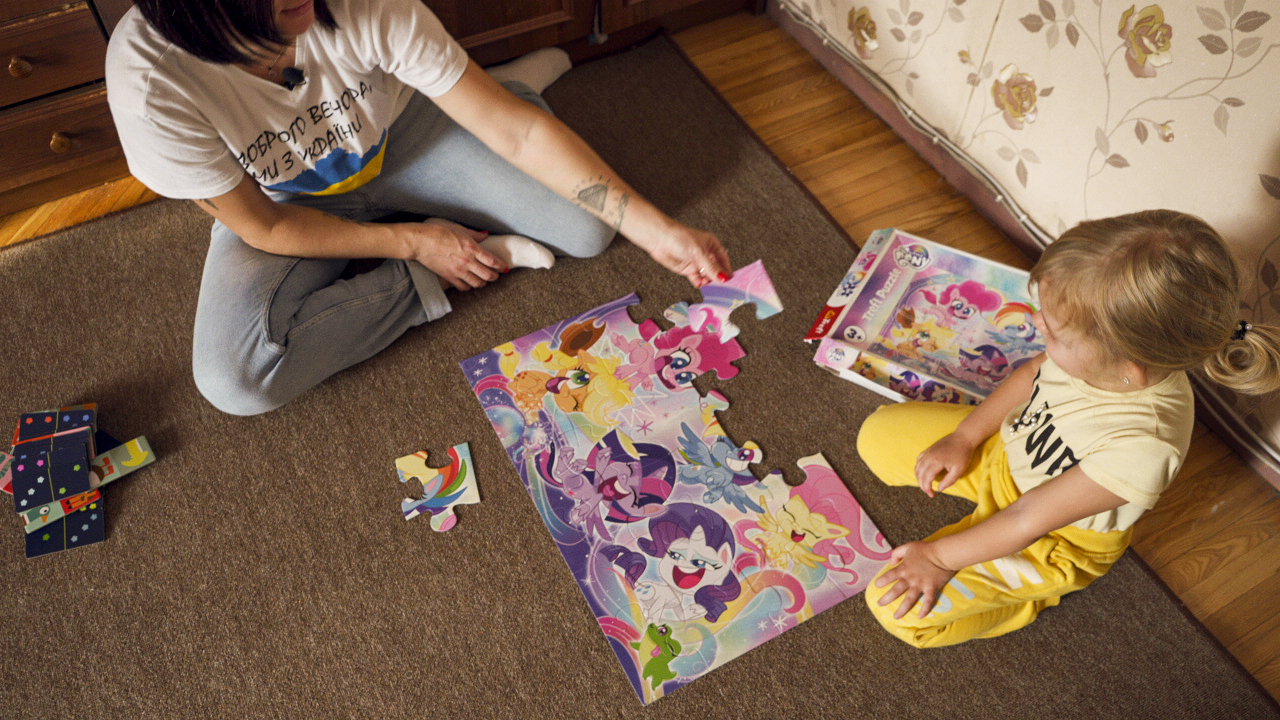
The police came. We entered the house, I took the child, gathered all my stuff and they took me to my mother’s house. On the way, the police said: ‘We will report all this to the social services.’ I was afraid that my children would be taken away from me. In the evening he came to my parents’ house again, drunk. And everything started from the beginning again. Mom called the police.
But this time the policewoman asked: ‘Do you need help?’ It was the first time the police had offered me help. Of course, I agreed.
This was the first step towards escaping this vicious circle of violence. They took me to a crisis room, gave me a food kit. I started working with a psychologist, cried out my pain, got legal help, and issued a restraining order for six months so that he would not have the right to contact us. We didn't see each other for all those six months, and it helped us not to return to this relationship.
In the crisis room, my fear finally disappeared, I thought: ‘Why didn't I find out about this possibility earlier? I would have saved so many years and my children would not have grown up in this violence. He damaged my son psychologically. He could have had a completely different childhood’.
I started to live a different life. In the crisis room, opened with the support of UNFPA, photography courses were launched for girls and women who had suffered from domestic violence. Twenty of us were trained as photo, video, and aerial photographers. I was even one of the top five students. Crisis room with support of UNFPA rented a photo studio for us. One week someone was an administrator, someone a photographer, someone else made a video. Then we changed roles. The crisis room helped us with orders, advertising the studio. We developed a portfolio and had many plans.
But they were destroyed by the war. Everyone started leaving the city, the studio had to be closed and everyone was left without a job.
"Because of the war, violence has returned again"
Before the full-scale war, when the restraining order expired, my ex-husband started calling again with threats, asking to see our daughter. I did not know what he was capable of, so I allowed him to see the child, but only in my presence. When my daughter saw him, she hid behind me. She was very traumatized, afraid of men. He saw that she did not make contact with him, but thanked me for the meeting and asked if he could come to the playground. He began to make contact with her. I doubted until the last whether I should let her see him.
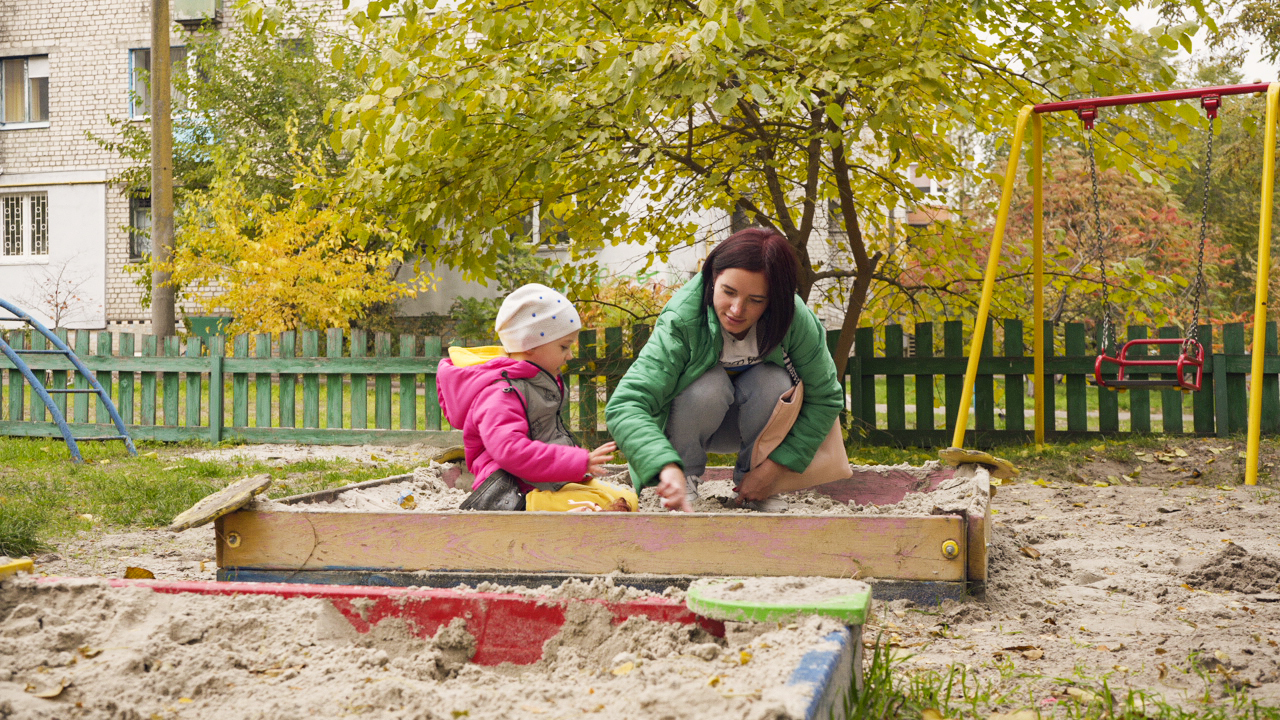
And when the war began, people began to get closer. My ex-husband started to come to our home. He behaved in a friendly manner and sometimes I even let him take our daughter for a walk. I understood that everything was over between us, but I did not prevent him seeing my daughter.
Little by little, he started controlling me again, asking where I was. In Kherson, after the beginning of the full-scale war, it was not easy to get food, so I usually ran out early in the morning to buy some. Later, it was dangerous to do this, as there were many Russian soldiers with weapons on the streets. On one of these occasions, when I was not at home, he came to the house and saw that only my youngest daughter, whom I had put to bed, and my eldest son were there. My ex-husband has a strained relationship with him, because my son is fourteen and he can already stand up for me. This time he beat my son. The child was able to record all this on his phone.
On the recording, we could hear the sounds of blows and how my son asks him to stop, shouting: ‘You will kill me.’
My son could not call me, because there was no connection in the city. So when I returned home, I saw that the child was bruised, with an adult handprint on his neck. Out of desperation, I called the police, who were Russian by then. I was sent to one person, then to others. After two hours of calls, I was told that someone would come to help, but no one did. The next day I went to see them myself. The military replied that they would not help me. I understood that no one would punish him, no one would help me: today he will beat my child, tomorrow he will kill him.
"When we got off the bus, tears were flowing"
I quickly packed my stuff and called the UNFPA shelter for survivors of domestic violence, where I had been before. I talked with the representative of the shelter and decided to leave Kherson, which was then under the temporary military control of the Russian Federation. They took my documents and transferred them to Kyiv, so I knew that UNFPA employees were already waiting for me there. They were in touch with me all the time and helped me at every step.
The road was difficult. There were many Russian checkpoints, documents were checked, men were taken off the bus every time. At the sixth checkpoint, someone on our bus shouted: ‘Glory to Ukraine.’ The next roadblock again ‘Glory to Ukraine!’ I did not understand what was happening, I asked: ‘Who is shouting all the time?’ And someone replied: ‘We can do it, it's ours.’ And I felt incredible relief.
We got off the bus and everyone was in tears. The soldiers greeted us with the words: ‘You will return home by the New Year.’ We cried even more.
We reached Zaporizhzhia and from there went to Kyiv. Employees of services supported by UNFPA were already there waiting for us. They took us to the crisis room We could live there for free.
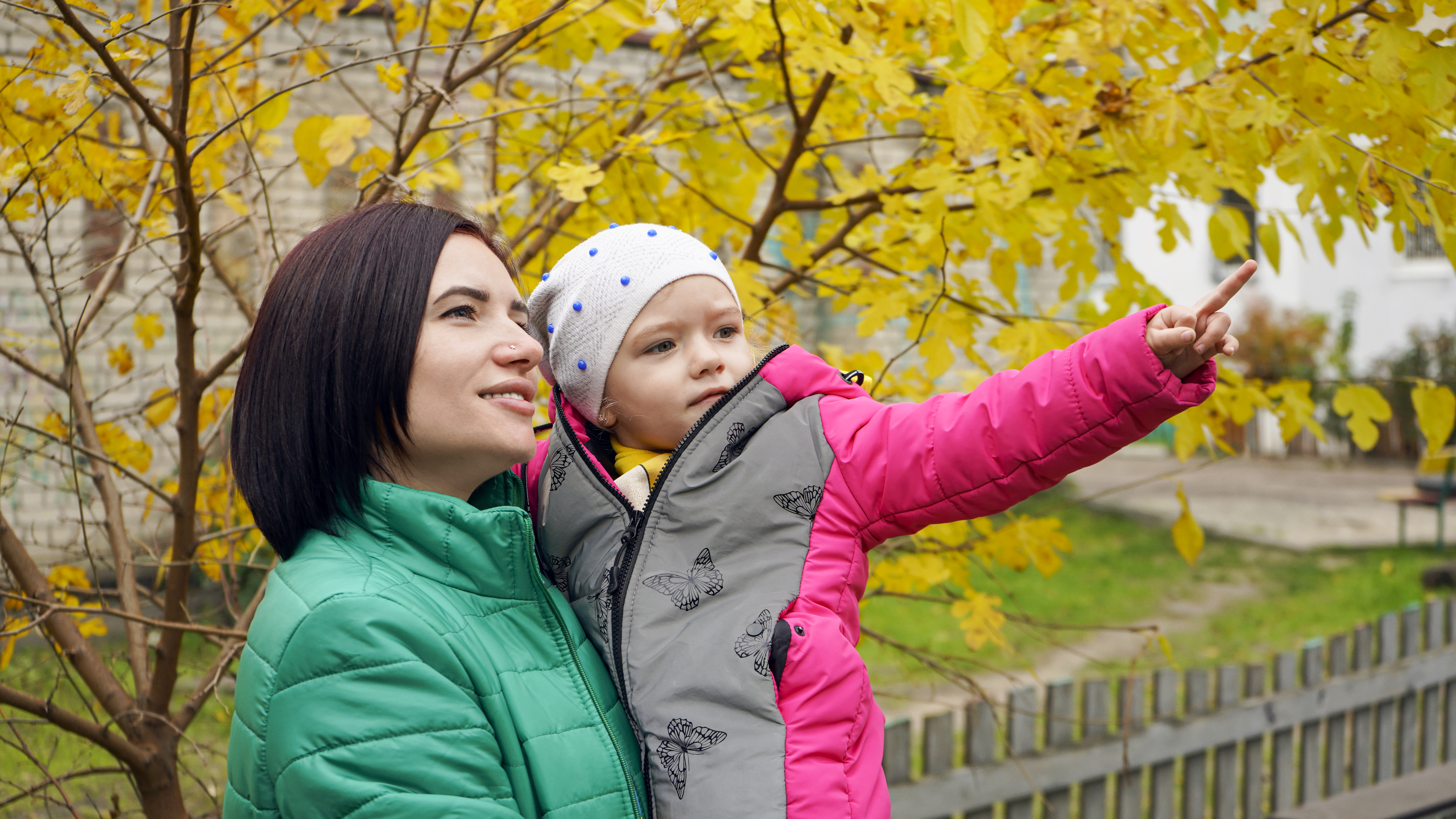
But I found an apartment in a good area. Now youngest daughter goes to kindergarten, we go to a psychologist, get help from a lawyer. Employees of services supported by UNFPA helped us with the preparation of documents for passports for the children. We received payments as internally displaced persons. If the situation in the country worsens, we plan to go abroad.
I want other women who find themselves in the same situation as me not to be afraid to break the cycle of violence, not to be ashamed, not to think that it is your fault if you are beaten. They should remember that they are not guilty. The abuser does everything to destroy your self-esteem, makes you believe in your own guilt, to think: ‘I should have remained silent; if only I had not answered back.’ No need to be silent. You need to ask for help. I am grateful to everyone, from the operator of the hotline, to the police officers and all those who created a system where women can get help. Without their support, I would probably have lived in this toxic relationship for another 10 years and would not have been able to get out of it. There is help. I am an example; it changes lives.
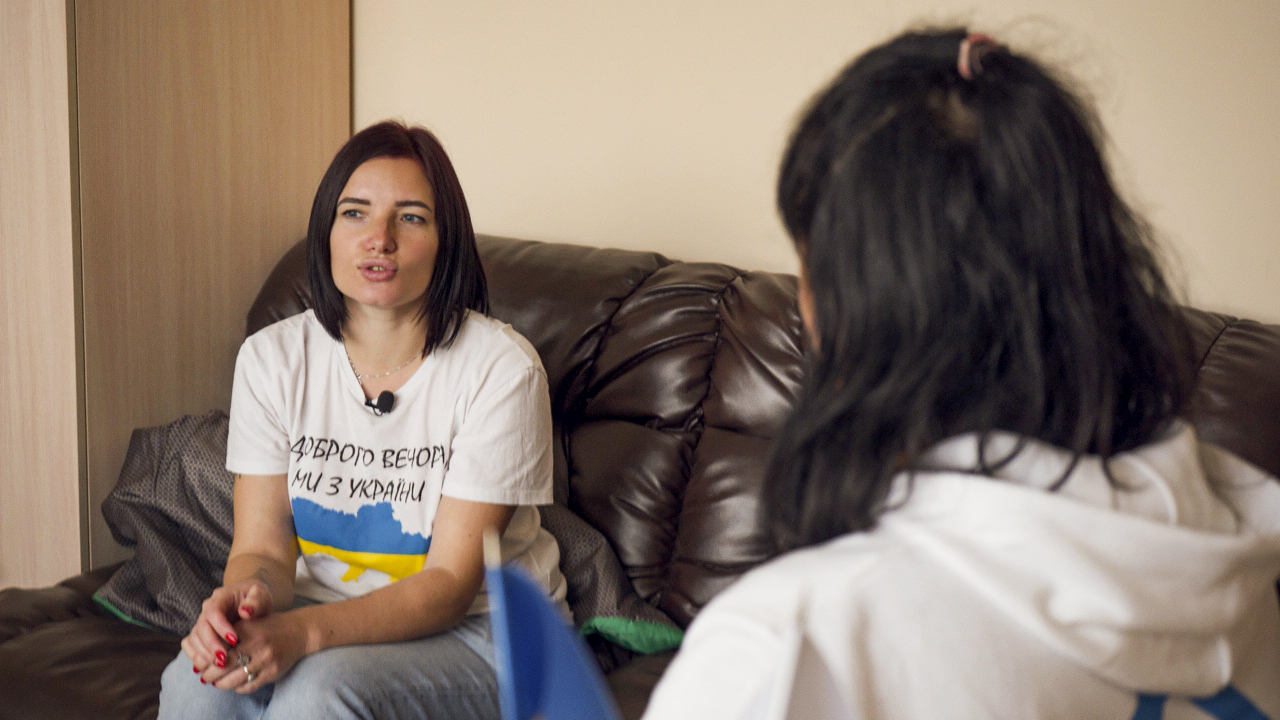
I also want to call on people who have the opportunity to evacuate, to do so. I was stopped by thoughts like: ‘Where will I go; who is waiting for me there? Will I be able to start all over again in a new city alone with three children?’
But I am convinced, by my own experience, that you will not be left alone. There are volunteers in any city. They help you to get settled and find housing and work and provide food.
If you feel that your life or safety is threatened, ask for help!
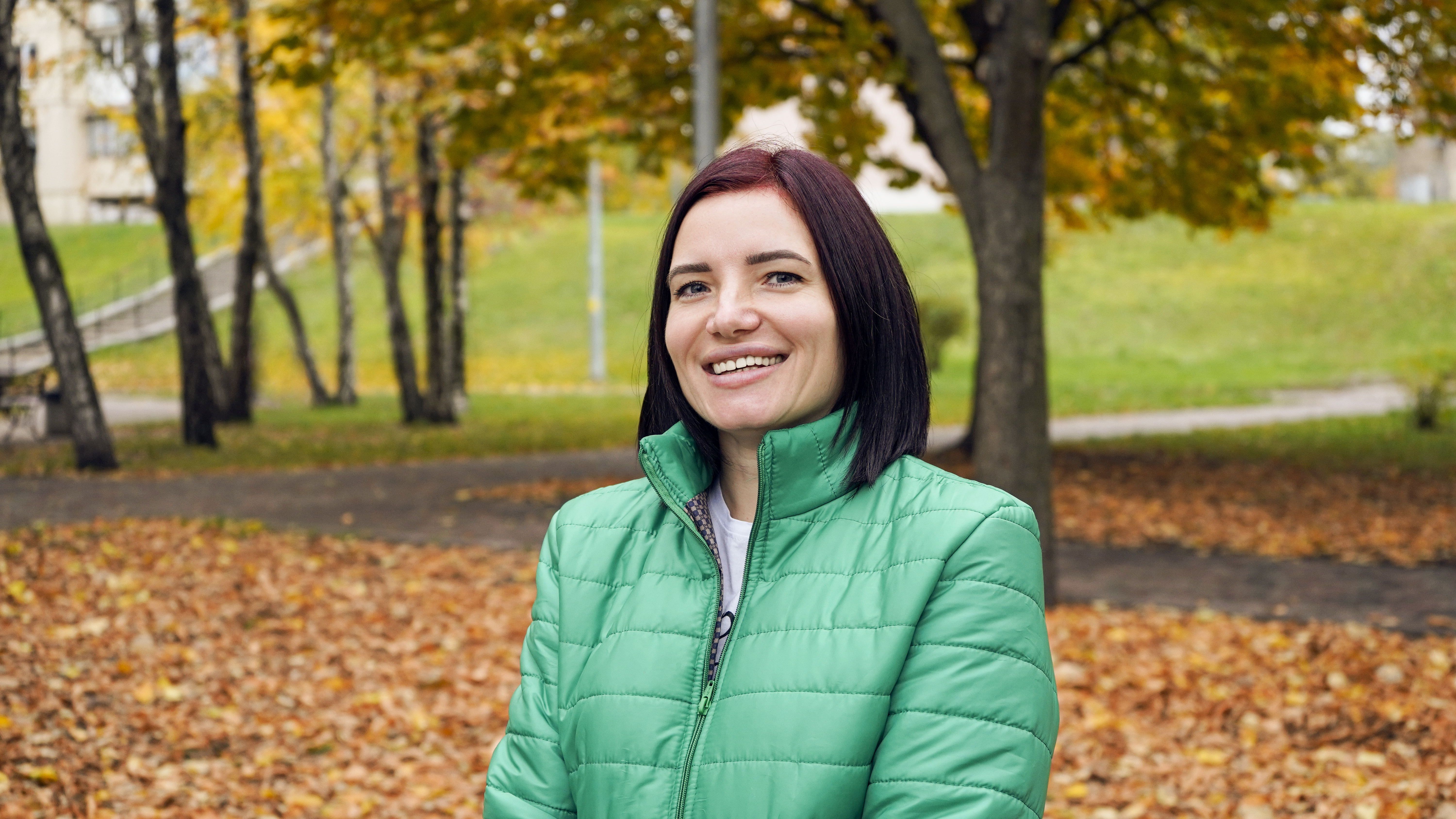
This conversation took place before the Ukraine government regained control over the city of Kherson. Kateryna was able to leave the city in September 2022 and started life in Kyiv thanks to the support of UNFPA.
Before the full-scale war Kherson was building a system of response to and prevention of gender-based violence, creating services for support to survivors. Since 2020, Kherson has been a participant in the UNFPA project, Cities and Communities Free from Domestic Violence, which is being implemented thanks to the support of the governments of the United Kingdom and Canada.
"Today he beats, and tomorrow he will kill" – the story of Kateryna, who experienced violence

